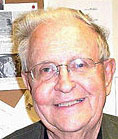Year: 2006 Pages: 16
Towards the end of the 19th century, Kelvin pronounced as the ?clouds of physics":
- the failure of the Michelson-Morely experiment to detect an ether wind, and
- the violation of the classical mechanical equipartition theorem in statistical thermodynamics.
And he believed that the removal of these clouds would bring physics to an end. But as we know, the removal of these clouds led to the two great breakthroughs of modern physics:
- the theory of relativity, and
- quantum mechanics.
Towards the end of the 20th century more clouds of physics became apparent. They are:
- the riddle of quantum gravity
- the superluminal quantum correlations, and
- the small cosmological constant.
As there was in the discovery of radioactivity by Bequerel and Curie, really one more cloud of 19th century physics carried over to become a 20th century cloud of physics, leading to the discovery of the atomic nucleus (and nuclear energy), there are likewise late 20th century clouds which have become 21st century clouds of physics. They are:
- the riddle of dark energy making up 70% of the physical universe
- the non-baryonic cold dark matter making up 26%, and
- the very small initial entropy of the universe.
It is the very small initial entropy which is most difficult to understand, with some scholars even suggesting for its explanation a divine intervention (see my version of Michelangelo). But with GOD normally not mentioned in physics textbooks, this has become an embarrassment for the physics community.
In my talk I will try to explain the importance of these clouds for the future of physics and present conjectures for a possible solution of these riddles. These conjectures will have to do with Einstein's last query: ?Can quantum mechanics be derived from general relativity?, and with the question is there an ether?


